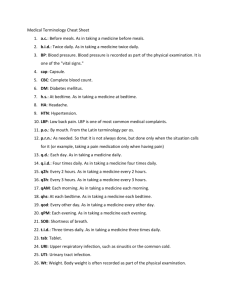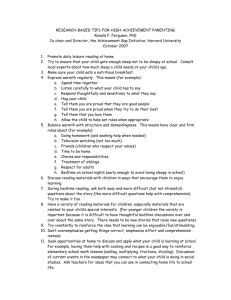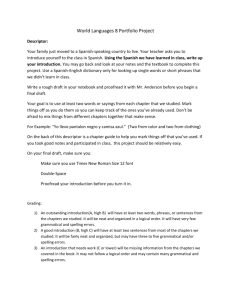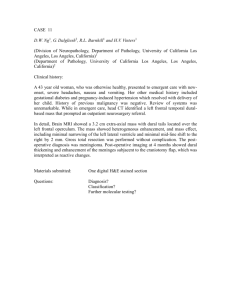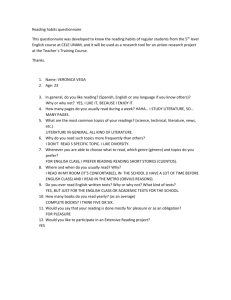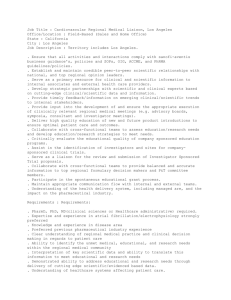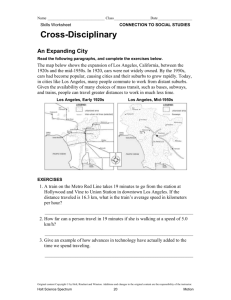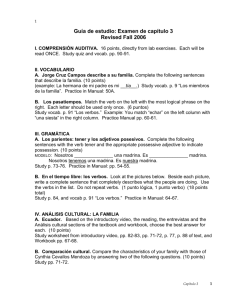Sample sheet for exercises – IDEA
advertisement
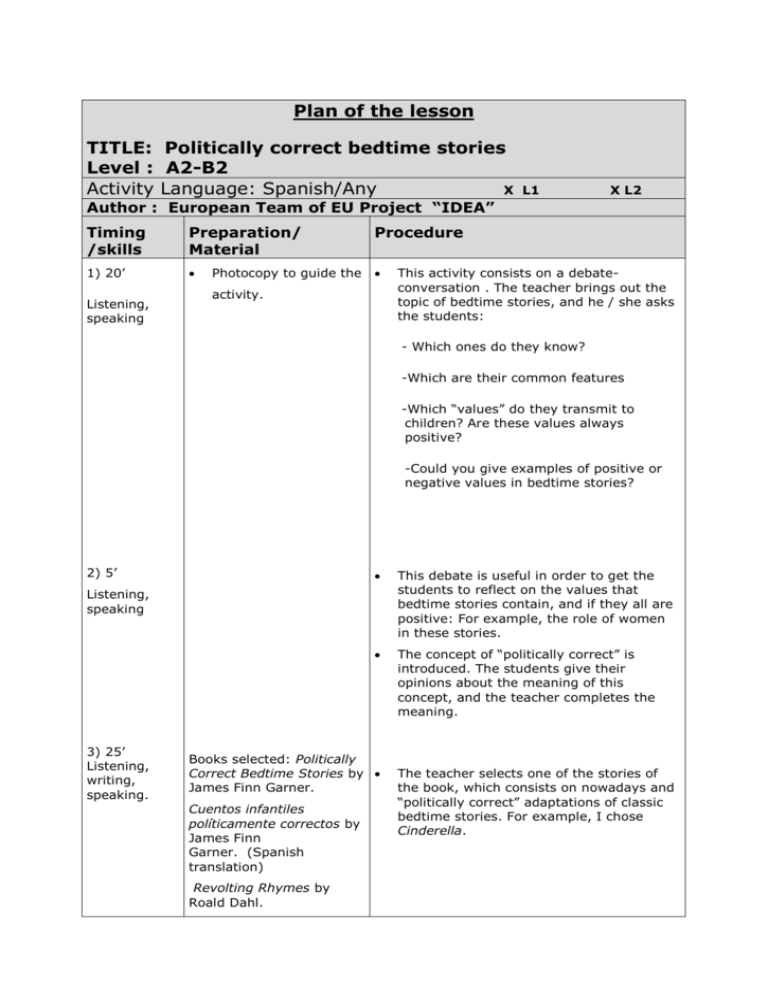
Plan of the lesson TITLE: Politically correct bedtime stories Level : A2-B2 Activity Language: Spanish/Any X L1 X L2 Author : European Team of EU Project “IDEA” Timing /skills Preparation/ Material Procedure 1) 20’ Listening, speaking Photocopy to guide the activity. This activity consists on a debateconversation . The teacher brings out the topic of bedtime stories, and he / she asks the students: - Which ones do they know? -Which are their common features -Which “values” do they transmit to children? Are these values always positive? -Could you give examples of positive or negative values in bedtime stories? 2) 5’ This debate is useful in order to get the students to reflect on the values that bedtime stories contain, and if they all are positive: For example, the role of women in these stories. The concept of “politically correct” is introduced. The students give their opinions about the meaning of this concept, and the teacher completes the meaning. Listening, speaking 3) 25’ Listening, writing, speaking. Books selected: Politically Correct Bedtime Stories by James Finn Garner. Cuentos infantiles políticamente correctos by James Finn Garner. (Spanish translation) Revolting Rhymes by Roald Dahl. The teacher selects one of the stories of the book, which consists on nowadays and “politically correct” adaptations of classic bedtime stories. For example, I chose Cinderella. The students have to listen to the story and note down all the differences they notice from the original one. Later, these differences are commented in class. For example, related to the roles of men and women in the adaptation and in the original one, etc. Finally, the students are asked to write something similar at home: they have to choose a classic bedtime story and adapt it to current times and make it “politically correct”. 4) Writing Plan de la actividad TÍTULO: Cuentos infantiles políticamente correctos NIVEL : A2-B2 Lengua de la actividad:Español/cualquiera X L1 L2 Autor : European Team of EU Project “IDEA” Tiempo/h Preparación/ abilidades Material Procedimiento 1) 20’ Ficha para el profesor Comprensión y expresión oral. Esta actividad consiste en un debatecoloquio. El profesor saca el tema de los cuentos infantiles, y se les pregunta a los alumnos: - ¿Cuáles conocen? -¿Qué características tienen? -¿Qué mensajes o valores aportan estos cuentos a los niños? ¿Son estos mensajes siempre positivos? -¿Podéis dar ejemplos de “mensajes” positivos o negativos en los cuentos infantiles? Este coloquio nos sirve para que ellos reflexionen sobre los valores que contienen los cuentos infantiles clásicos, y sobre si todos ellos son positivos: por ejemplo, el papel de la mujer. Introducimos en el coloquio el concepto de “lo políticamente correcto”. Los estudiantes dan su opinión acerca de qué significa este concepto, y el profesor completa el significado. El profesor escoge una de las historias del libro, que consisten en adaptaciones actuales y “políticamente correctas” de cuentos infantiles clásicos. Por ejemplo, yo escogí La Cenicienta. Los alumnos deben escuchar el relato y apuntar las diferencias que observen con respecto al relato original. Posteriormente comentamos en clase las diferencias. Por ejemplo, respecto al rol de hombres y 2) 5’ Comprensión y expresión oral. 25’ Comprensión y expresión y expresión escrita. Libro: Cuentos infantiles políticamente correctos de James Finn Garner. mujeres en la adaptación y en el original, etc. Finalmente, los alumnos deben realizar en casa una actividad similar: elegir un cuento infantil clásico y adaptarlo a la actualidad y hacerlo “políticamente correcto”.
